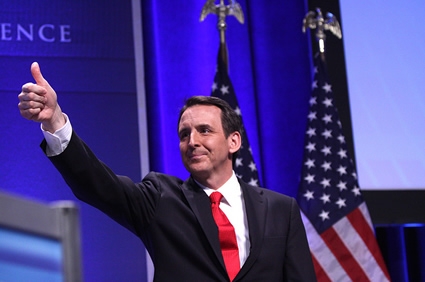Last week, New York Governor Andrew Cuomo announced a deal with state lawmakers over pending legislation to enact a property tax cap in the state.
If the deal passes, the cap would be one of the strictest in the nation, capping annual growth in property tax revenues at 2 percent or the inflation rate, whichever is lower. The proposed cap would allow exceptions in limited circumstances, such as public pension shortfalls. Voters in a given locality could also override the cap by a 60 percent vote.
Even with the exceptions, the 2 percent cap is guaranteed to have a deleterious effect on New York local governments’ ability to provide core services. Funding for schools, which depends heavily on property tax revenues, will bear the brunt of the tax cap.
According to Gov. Cuomo’s own numbers, property taxes have had to rise well above 5 percent each year to keep up with demand for critical services, so the 2 percent cap would inevitably force harsh cuts.
According to Richard C. Iannuzzi, president of New York State United Teachers, the state’s education system will be “devastated” by the cap just as it’s already suffered three years of the “toughest cuts” to education.”
Democratic lawmakers had attempted to stop some of these cuts by extending a popular surcharge on upper-income taxpayers, but Gov. Cuomo favored cuts to education instead and stopped the effort in its tracks.
The New York Times lashed out at Gov. Cuomo, arguing that the “tax cap is nothing more than a political crutch for politicians who don’t have the courage to argue the case for more taxes or for spending cuts.”
The Wall Street Journal, on the other hand, has trotted out its usual misinformation campaign in support of the cap, claiming that high property tax rates are causing New Yorkers to move out of the state.
In the same editorial, the Wall Street Journal also claimed that the tax cap in Massachusetts should be a model for New York, a notion that the Center on Budget and Policy Priorities thoroughly deconstructed a few years ago.
“Tax caps are not a novel or new approach. They are a tired gimmick with a history of failure,” writes Kevin Hart for the National Education Association, pointing to the devastating effect similar caps have had Massachusetts, Illinois, California and Colorado.
None of this is to say that New York’s property tax and education funding mechanisms are not in need of change. In fact, the Institute on Taxation and Economic Policy (ITEP) has documented in detail the ways in which New York should pursue systematic reform to improve the fairness and adequacy of its revenue system.
Even if Gov. Cuomo’s goal was simply to provide New York residents with a property tax break rather than enact fundamental reform, ITEP points out that property tax “circuit breakers”, rather than property tax caps, provide the most effective and well-targeted relief to those most in need, without damaging education funding overall.
Advocates in New York are also making the case for a property tax circuit breaker as a more targeted alternative. At a press conference this week, school board members, county and local government officials and advocacy organizations joined with some Assembly members to speak out against the tax cap, calling it a “punitive, misguided approach to public concerns about property taxes.”
![]()





 Former Minnesota governor and presidential candidate Tim Pawlenty has released his proposed tax plan, including very specific rate cuts and exemptions for investment income, and vague promises to eliminate tax loopholes. Even if he eliminates all itemized deductions and credits, millionaires would still receive an enormous income tax break under the plan.
Former Minnesota governor and presidential candidate Tim Pawlenty has released his proposed tax plan, including very specific rate cuts and exemptions for investment income, and vague promises to eliminate tax loopholes. Even if he eliminates all itemized deductions and credits, millionaires would still receive an enormous income tax break under the plan.